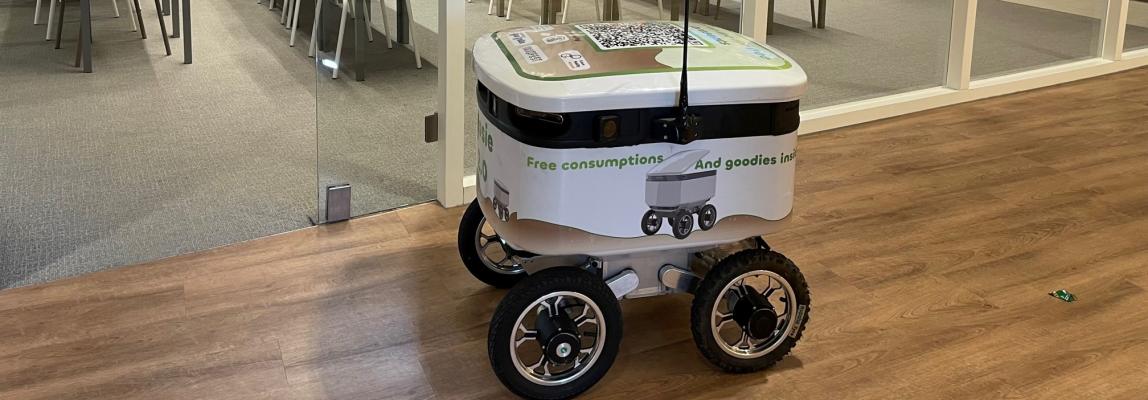
What is the impact of automated vehicles?
09/20/2023 - 13:27
Nowadays, autonomous driving is a hot topic in most of our domains. In logistics, in facility management and in the built environment, the transition to more self-driving vehicles is taking place, for cleaning, last-mile transport or in warehousing. As this is the main topic of our professorship Smart City Logistics, ABEL staff and students participated in a demo session together with industry partners and Dutch Automated Mobility (DAM) to discuss the latest developments in automated mobility and its impact on public spaces.